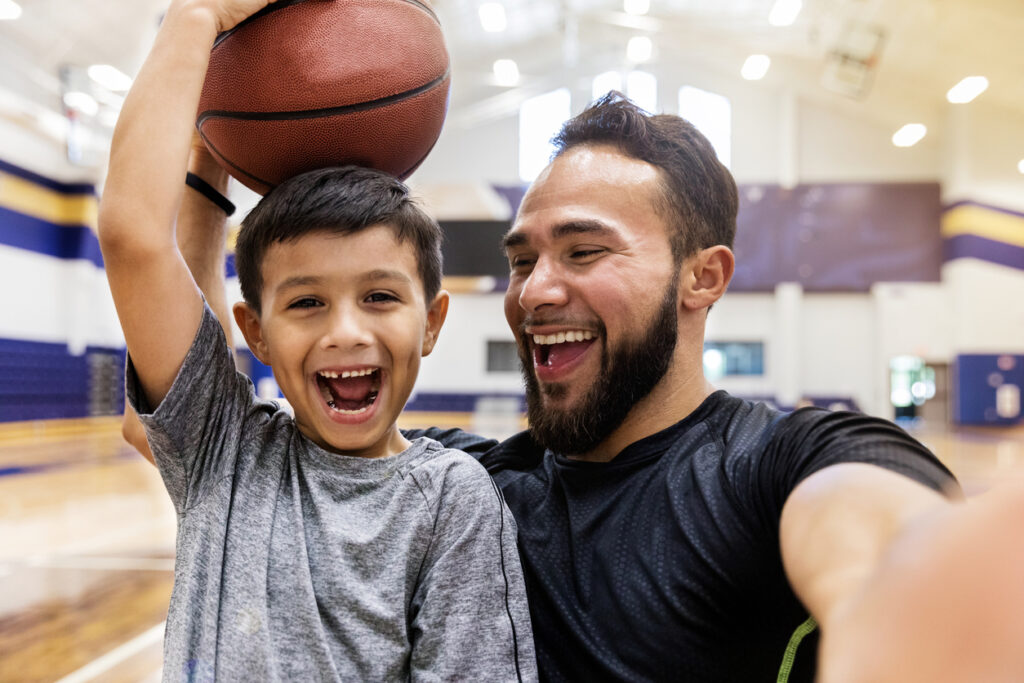The Importance of Diversity and Cultural Awareness in Foster Care

Every young person deserves to know that they matter and that they belong. For children and teens with diverse backgrounds, that’s not always the case. Cultivating cultural awareness within foster care can help.
As a temporary arrangement for children and teens when their parents are going through a crisis, foster care can be critical in providing a safe, nurturing environment. It’s essential to both cover a child’s basic needs and for the child to know they’re accepted for who they are. Promoting cultural awareness and sensitivity within the foster care system is the best approach for improving the chances that each child’s unique identity is respected and celebrated.
Let’s explore the importance of cultural awareness for foster caregivers, as well as the transformational impact that diverse foster caregivers can make on the children in their care — and why KVC Missouri welcomes foster caregivers of all backgrounds.
Why is Cultural Awareness Important in Foster Care?
First of all, what is cultural awareness? Cultural awareness involves actively seeking knowledge and understanding about different cultures, including their beliefs, traditions, values and practices. It’s all about the recognition, appreciation and acceptance of the unique behaviors and perspectives that each culture has to share with the world.
This awareness goes beyond the simple recognition of differences, however. Cultural awareness involves the development of empathy, respect and sensitivity toward those who differ from us. For foster parents, cultural awareness creates a more positive and accepting environment for the children in their care. When caregivers show interest in embracing the diverse needs of a child in their care, a positive relationship can grow. With better understanding and support, caregivers can show each child the respect and validation they need to thrive.

Amanda Everson, KVC Missouri
“Children in foster care already struggle to feel a sense of belonging,” explains Amanda Everson, Director of the Child Placing Agency with KVC Missouri. “They may struggle with their identity because of some of the trauma that they’ve experienced, including being removed from their communities a lot of the time.” Feeling accepted for who they are is a value that no child should have to compromise. This holds even greater importance during the transition into foster care which can be traumatic for a child.
Why Diversity Matters in Foster Parents
Alongside the need for cultural awareness is the need for cultural diversity among foster caregivers. One significant reason why diverse caregivers can make an impact is the disproportionate representation in foster care.
While the share of children who are Black and in foster care is the lowest it has been in two decades, Black children are still overrepresented in foster care, representing 14% of the total child population but 22% of all children in foster care. And nearly one-third of children and teens entering foster care are in the LGBTQIA+ community.
Everson notes that caregivers with diverse backgrounds can be invaluable to young people in foster care. “It’s important for KVC to look within the community and recruit foster families with culturally diverse backgrounds, so children being placed can have a greater chance at gaining supportive and affirming care,” Everson explains. “In recent years, it’s become clear that caregivers with diverse backgrounds and perspectives are stepping into a much-needed role. We know that we need more families for the kids that we’re serving.”
LEARN ABOUT Becoming a FOSTER PARENT
How We Can Embrace Diversity Within the Foster Care System
Ultimately, when we embrace diversity, children and teens understand that they matter.
Diversity encompasses the presence of a wide range of differences, perspectives and attributes among individuals. Race, gender, age, ethnicity, religion, sexual orientation, socioeconomic status and personal abilities are among the various traits that create our diverse society.
Within the foster care system, diversity, equality and inclusion are essential. Each child in need of a foster family has their own unique background and identity. Ensuring a culturally responsive and inclusive environment can be the difference a child is looking for in a home. Finding a culturally aware home that will also provide an inclusive and loving environment is not as easy as it seems. That said, when a child does find themselves with a caregiver who fits their needs, they flourish.
The Positive Impact of Diversity
Young people who are in foster care experience disproportionate trauma and challenges, including abuse and exposure to psychological distress, compared to those who remain in their biological homes. In fact, studies show that almost 80% of youth in foster care struggle with mental health issues, including, anxiety, depression and post-traumatic stress disorder (PTSD). Without the proper support and the right tools for dealing with them effectively, they can feel lost, alone and vulnerable.

Because of this, sensitivity among caregivers is crucial. Young people have the chance to thrive when they’re welcomed, Everson adds. KVC embraces caregivers with diverse backgrounds and knows the positive impact that connection can have on the lives of the youth in our communities. We strive to find caregivers who can increase the love, acceptance and support each child receives. “It’s about finding the right fit,” Everson says. “Something just clicks and the child really thrives and excels.”
What can caregivers do to enhance their own cultural awareness? Some strategies include:
- Educate yourself: Particularly for caregivers who haven’t had an opportunity to understand a culture or identity different from their own, take the initiative to learn. A little research can go a long way, and engaging with resources can help.
- Ask thoughtful, open-ended questions: For younger children, it can help to ask practical questions about their background; for example, asking what holidays they like to celebrate or what types of food they like to eat. For older children, invite them to lead the charge on their identity. While these conversations aren’t always easy, they can be joyful.
- Build community, and don’t go it alone: Connecting with other foster parents can help you know you’re not alone on this journey, and can also help you build cultural awareness. It could look like a formal support group, but can also be an informal circle of people in your corner who can offer good ideas. This circle could include the child’s medical and mental health teams, as well as team members from KVC.
KVC Embraces Caregivers with Diverse Backgrounds
Here at KVC, connection is at the heart of our mission. A sense of connection and trust is built when a child in foster care is safe, nurtured and accepted — when they feel a sense of belonging. Cultural awareness sets the stage for children to feel known and cared for.
If you have an interest in learning more about becoming a foster parent, get in touch with KVC Missouri. Worried you don’t have what it takes to be a foster parent? The most important qualification is a willingness to support the child in your care. We welcome foster parents from all walks of life and can answer any questions you have. There are many misconceptions about who can be a foster parent and we aim to provide education and opportunity.





